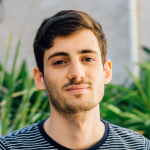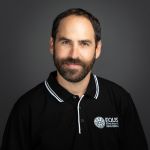EQUS Researchers Awarded Funding to Advance Quantum Innovation in Queensland
EQUS Researchers Awarded Funding to Advance Quantum Innovation in Queensland
We are thrilled to announce that EQUS researchers have been awarded funding as part of the QLD Governments Quantum and Advanced Technologies Strategy in which $53 million was invested in quantum research. This investment will support numerous innovative quantum projects, with 10 of them from the University of Queensland.
![]()
Prof Andrew White (Lead CI), A/Prof Jacqui Romero and Dr Daniel Peace
Program: Quantum and Advanced Technologies Commercialisation Infrastructure
Project: National Advanced Photonics Facility
Establishment of a National Advanced Photonics Facility to provide the first Australian commercial capability in manufacturing and processing nanophotonics and optomechanics.
![]()
A/Prof Arkady Fedorov (Lead CI) and Prof Andrew White
Program: Quantum and Advanced Technologies Commercialisation Infrastructure
Project: National Quantum Computing Testbed Facility
The National Quantum Computing Testbed will provide open access small-scale quantum processors to enable the development and optimisation of low-level hardware interfaces and controls, error correction, novel computing designs, and modes. The Testbed will allow researchers and industry to fairly access hardware outside of current commercial quantum computers.
![]()
Dr Tyler Neely (Lead CI) and Prof Halina Rubinsztein-Dunlop AO
Program: Quantum 2032 Challenge
Project: CERQus: Cavity-Enhanced Rydberg Quantum Sensors for Bioelectrics
The aim of this project is to apply atomic sensors utilising Rydberg states to meet open problems in the medical assessment and performance optimisation of athletes, with particular focus on sensitive monitoring of cardiac and brain electrical signals.
![]()
Dr Igor Marinkovic (Lead CI), Prof Warwick Bowen, Dr Pavlina Naydenova and Dr Nicolas Mauranyapin
Program: Quantum 2032 Challenge
Project: Quantum Assays for Anti-Doping Control
Ensuring fair competition at the Olympic and Paralympic Games relies on robust anti-doping measures. Detection techniques must continuously evolve to keep pace with advancing doping strategies and emerging substances. Synthetic versions of human proteins, such as erythropoietin, present a significant challenge due to their structural similarity to natural proteins and their low concentrations. To address this issue, this project aims to develop new biochemical assays using quantum sensors to achieve sensitivity levels that surpass current technologies.
![]()
Prof Warwick Bowen (Lead CI), Dr Benjamin Carey and Fernando Gotardo
Program: Quantum 2032 Challenge
Project: Quantum Concussion Diagnostics
This project will develop low-cost portable quantum magnetoencephalography (MEG) for immediate concussion diagnosis of athletes on the sports field. This will vastly improve safety in both competition and training which is particularly important for adolescent brains, enhancing safety during talent development stages and helping to prevent long-term chronic trauma. The technology will also improve access to medical care, facilitating widespread MEG availability in regional and remote communities, doctors’ offices, and imaging centres.
![]()
Prof Ryan Riddick (Lead CI), Prof Paul Hodges, Prof Warwick Bowen, Prof Markus Barth, Emeritis Professor Bill Vicenzino, Dr Taylor Dick, Dr Wolbert van den Hoorn, Dr Nathaniel Bawden and Dr Benjamin Carey
Program: Quantum 2032 Challenge
Project: A quantum exo-garment for unrivalled measurement of muscle function in sport
Measuring muscle behaviour with quantum magnetometers has proven to be a non-invasive alternative to traditional methods (such as electromyography), with superior scope to comprehensively record muscle. This project aims to overcome technical challenges that exist with current quantum magnetometers, and to develop a wearable device which will offer unrivalled capacity to wirelessly measure muscle function in sport.
![]()
Prof Warwick Bowen (Lead CI), H Wiseman, G Pryde, Associate Professor Jacinda Ginges, Dr Carla Verdi, Dr Peter Jacobson and Prof Ben Powell
Program: Quantum Decarbonisation Mission
Project: Queensland Quantum Decarbonisation Alliance
The Queensland Quantum Decarbonisation Alliance (QDA) brings together four key stakeholders with deep expertise in quantum research, innovation and commercialisation (University of Queensland, Griffith University, PsiQuantum, and CSIRO) along with 23 other partner organisations spanning carbon-intensive industry, decarbonisation and commercialisation to drive decarbonisation across key industries, with research to be led through seven new research teams within the QDA.
![]()
The Queensland Government’s quantum research investment highlights Australia’s leadership in this rapidly advancing field, and our Centre is proud to contribute to this critical effort.
These projects will have far-reaching impacts across a wide range of sectors, helping to shape the future of science and technology on a global scale. We look forward to seeing the outcomes of their research and celebrating future achievements from our Centre members.
The list of recipients of all awards can be found here.
About the programs:
Quantum and Advanced Technologies Commercialisation Infrastructure Program:
The Quantum and Advanced Technologies Commercialisation Infrastructure Program (QCIP) seeks to co-invest with universities, research facilities and industry to establish shared infrastructure to support the development and commercial scale-up of prototype devices and components derived from Queensland’s quantum and advanced technologies capabilities.
The primary objective of the program is to support Queensland quantum and advanced technologies startups and industry to move their invention beyond the prototype stage without having to go to offshore facilities, to keep value-adding and manufacturing opportunities in Queensland.
Quantum 2032 Challenge:
This initiative is designed to fund projects that demonstrate how Queensland's quantum technologies can offer innovative solutions and enhancements for the upcoming Brisbane 2032 Olympic and Paralympic Games, with a particular emphasis on ititiatives related to the 2032 Paralympic games.
Quantum Decarbonisation Mission:
The Quantum Decarbonisation Mission (the Program) will fund projects with the potential to provide significant decarbonisation benefits through quantum technologies and provide a platform for collaboration between quantum scientists, decarbonisation domain experts, and industry partners.
Major funding support

The Australian Research Council Centre of Excellence for Engineered Quantum Systems (EQUS) acknowledges the Traditional Owners of Country throughout Australia and their continuing connection to lands, waters and communities. We pay our respects to Aboriginal and Torres Strait Islander cultures and to Elders past and present.









